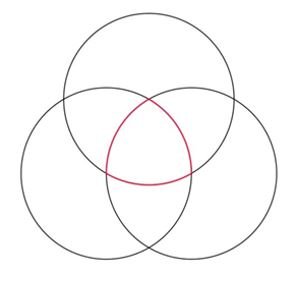Dealing With Conflicts of Interest Within a Team
What is the best method for dealing with conflicts of interest within a team?
All organisations exist to achieve their Ultimate Aims.
All organisations consist of subordinate teams, which should work together in a spirit of mutual cooperation to achieve the Ultimate Aim.
Conflicts between subordinate teams are dangerous, because organisations that suffer from internal "civil wars" are highly susceptible to failure.
So, it is important that "conflicts of interests" between warring factions, are resolved quickly.
Ultimately, there can be NO true "conflicts of interests" between subordinate teams, because they are all trying to achieve the same Ultimate Aim.
When there appears to be a conflict of interests, it is resolvable by judging the warring teams "conflicting interests" against the standard of the Ultimate Aim, and we find that one is more valuable (to the Ultimate Aim) than the other.
The general principle is:
If we have to choose between two or more competing interests: We always sacrifice the lesser values for higher ones, ie Whichever of the competing options adds most value to the Ultimate Aim, wins.
Who should make the decision?
The decision is made by the one who is paid to make important decisions, ie The senior person in the room should make the decision.
Decisions are not always binary.
There are many situations where a compromise between competing views is possible.
In that case, we don't need to choose between A and B.
Instead, we use this image to help us decide what to do:
- One circle is: What Team A wants.
- Second circle is: What Team B wants.
- Third circle is: What is logically possible.

The solution to the conflict is to be found in the intersection between the three sets. We are looking for the set of "logically possible conditions" that satisfy the needs of both A Team and B Team.
Please note that this set of conditions is small, when compared to the size of the whole shape. Which means it is often difficult to see. And it may not even exist!
If we get everyone into the same room and we draw the three-circle diagram onto the board and ask all concerned to write down their needs, and their ideas on how we might achieve them, then a "practical compromise solution" may soon be found, by mutual agreement.
If a "mutually agreed compromise solution" cannot be found, then a solution is imposed by the Decision Maker, who uses the organisations Ultimate Aim as the standard, against which to judge the competing claims.
Conflict Management Training
To learn more about handling conflict, please join us on our Conflict Management Training Course.
Definition: team conflict of interest
In business, a team conflict of interest is a workplace clash that arises when two or more internal teams want different actions or resources, each gain hurts the other, yet all teams serve the same overall aim, and one coming decision will settle which desire wins. Remove any one of these points and it is no longer this kind of conflict.
Show CG4D Definition
- At least two internal teams seek clashing gains
- Each gain helps one team and harms the other
- All teams share the organisation's overall aim
- One senior choice on shared resources, rules or action is pending
Article Summary
Solve team conflicts of interest fast: link every option to the organisation’s single aim, search for a win-win in the three-circle overlap, and if none exists let the senior decision maker choose the path that adds most value.
Frequently Asked Questions
Here are some questions that frequently get asked about this topic during our training sessions.
What is a conflict of interest between internal teams?
How does the ultimate aim guide team conflict resolution?
What principle decides which interest wins when teams disagree?
When should the senior decision maker step in?
How do you use the three-circle model in workplace conflict handling?
What if no overlap appears in the three-circle model?
Why resolve inter-team disputes quickly?
Thought of something that's not been answered?
Did You Know: Key Statistics
CIPD Good Work Index 2024 shows 29% of UK workers dealt with a conflict with a colleague or manager in the past year. Acas research (2022) finds workplace conflict costs UK employers about £28.5 billion each year, equal to roughly £1,000 per employee.Blogs by Email
Do you want to receive an email whenever we post a new blog? The blogs contain article 5-10 minutes long - ideal for reading during your coffee break!
Further Reading in Conflict Management and Handling Difficult People
-
How to Handle a Difficult Person in Six Easy Steps
Learn a proven six step method to handle a difficult person, switch anger to calm, reach clear deals, and close talks with less stress at work or home every day
Read Article > -
How to Handle a Complaint
Learn how to handle complaints with a six-step method: listen, empathise, question, answer, confirm and redirect. Boost service quality and retain customers.
Read Article > -
How to give feedback
Learn how to give feedback that lifts performance: public praise, private clear correction and zero insults. Rules and examples for managers and teams.
Read Article > -
How to Deal with Conflict Situations
Learn a simple three-step conflict management method: stay calm, state facts, ask for change. Boost communication skills and resolve workplace clashes fast.
Read Article > -
How to Handle Conflict Situations
Learn conflict management skills that turn workplace clashes into progress. Apply clear facts, good timing, calm body language and praise for resolution.
Read Article >
Looking for Conflict Management Training?
If you're looking to develop your Conflict Management and Handling Difficult People Skills, you may find this Conflict Management Training Course beneficial:
Open Training Course Pricing and Availability
Next Open Course Starts in 6 days, Leeds City, places available






